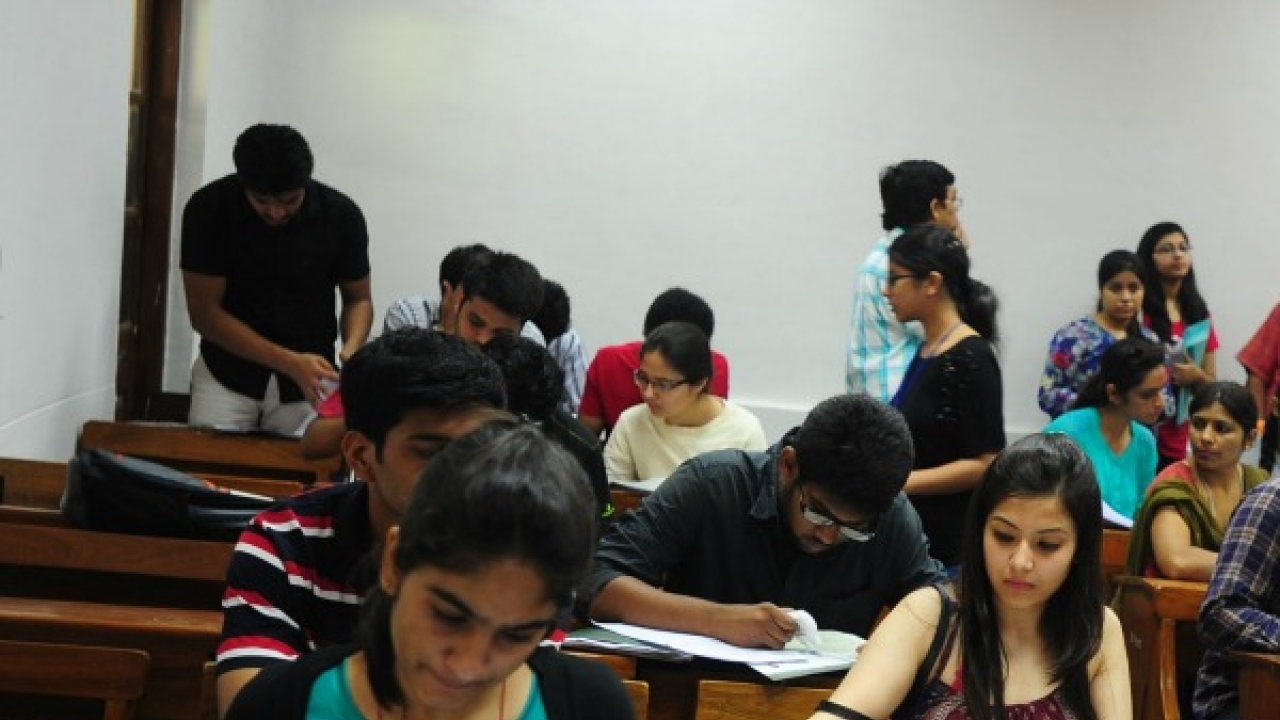Due to the draft released by the MCI guidelines that stated hearing-impaired equal to or more than 40 percent disability are not eligible, a father of a 40 percent visually impaired boy arrived in the national capital from Kaithal in Haryana Tuesday morning to meet disability rights activists. Unwilling to give out his name, the man said he fears his son, studying in Class 12, might not be able to take the National Eligibility-cum-Entrance Test (NEET) 2019 medical entrance exam.
“My son has been preparing for NEET for two years. Time is running out, I could no longer sit at home, so I packed my bags and came to Delhi though I have little clue about what is to be done. I will meet activists, maybe I will go to the health ministry,” he said.
As of now, draft MCI guidelines stated that “40 percent or more visually impaired (low vision and blindness) are not eligible for a medical course” since then Delhi High Court judgment has allowed a 70 percent hearing impaired girl to pursue MBBS at a medical college in Delhi.
Likewise, Rishabh Pal of Muzaffarnagar, Uttar Pradesh, who is 45 percent hearing impaired, has filled the NEET form but has no clarity about the eligibility criteria. His elder brother, Shubham, said “We just don’t know where we stand, whether Rishabh can avail the disability quota or not for an MBBS course. He could lose a year and even a career option.”
The National Testing Agency (NTA), which is conducting the NEET 2019, launched an online application process on November 1 last year – but with the old MCI guidelines for persons with disabilities.
After this, The Health Ministry ordered NTA to issue a notification that medical aspirants with disabilities can fill NEET forms on the basis of draft guidelines that MCI has posted on its website.
Even that notification came barely three days before the deadline to submit the application form was to end on November 30. Around that time, the Supreme Court stepped in and extended the deadline for submission of forms by a week.
On January 14, the NTA, for the first time, opened a correction window for candidates to submit corrections in their application forms. With that deadline too set to close on January 31, people like Bansal and Pal, who could have made corrections in their forms, if required, on the basis of final MCI guidelines, remain clueless.
Dr. Satendra Singh, a disability rights activist, said: “I have never heard of any examination being conducted on the basis of draft guidelines. Every day has become crucial for medical aspirants with disabilities. The reason behind the delay in finalizing the MCI guidelines, as I see it, is to give little time to candidates to take the legal route because draft guidelines are in violation of various rulings of the Supreme Court and high courts. They put unnecessary bars on disabled aspirants.”
“Besides, if candidates apply under the disability quota and it turns out later that they are ineligible, they will be disallowed from the entrance test. If they apply through the general quota, they then lose out the entitlement provided to them by the Rights of Persons with Disabilities Act 2016 (RPDA),” Dr. Singh, who represents a pan-India body called Doctors with Disabilities, added.
Doctors with Disabilities has already termed the revised MCI draft guidelines for admission into MBBS courses under disability quota as “unfair, discriminatory and unlawful”.
Sources in MCI, meanwhile, said: “We are getting reminders from the Health Ministry. The guidelines have been finalized.”
The medical test is scheduled for May 5, 2019.

